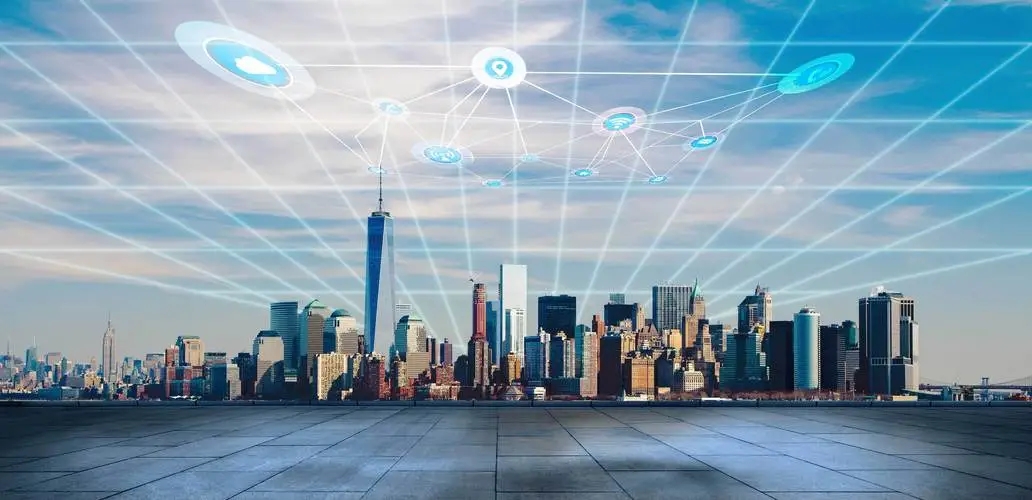In recent years, in the field of urban informatization, there are different concepts about the development of urban informatization, such as digital city, smart city, perceptual city, smart city, Internet of Things, which can integrate new generation information technologies, such as the Internet of Things, cloud computing, mobile Internet, and have the capabilities of rapid information collection, high-speed information transmission, highly centralized computing, intelligent information processing, and ubiquitous service provision, With the goal of improving people's sense of happiness, enterprise economic competitiveness and urban sustainable development, it has been recognized by more and more people, and the desire for a smart city is also rising. With the accelerated development of emerging industries such as information technology, it has increasingly become the consensus of all sectors of society to promote the coordinated development of urbanization, intelligence and personalization by leading new urbanization with smart cities.

Smart City Construction Process
By the end of 2019, 154 cities in China have proposed to build smart cities, 41 cities above prefecture level have formally proposed to build smart cities in the 13th Five Year Plan or government work report, and more than 80% of secondary cities have clearly proposed the development goal of building smart cities. At the beginning of 2020, the Ministry of Housing and Urban Rural Development announced the first batch of 90 national smart city pilot cities, followed by the second batch of pilot cities. During the entire "13th Five Year Plan" period, more cities, even districts and counties will join in the construction of smart cities.
Looking at the development of smart cities in China, it is not difficult to find that the number of smart cities under construction has reached 69. The Bohai Rim, the Yangtze River Delta and the Pearl River Delta are the concentrated areas of smart city construction. The number of smart cities in the three regions accounts for 59.4% of the total. Among them, there are 14 areas around the Bohai Sea, accounting for 20.3% of the total; There are 19 in the Yangtze River Delta, accounting for 27.5% of the total; There are 8 in the Pearl River Delta, accounting for 11.6% of the total. In addition, Wuhan urban agglomeration, Chengdu Chongqing economic circle, Guanzhong Tianshui economic circle and other central and western regions have also shown a good development trend. China's smart city construction has formed an overall construction pattern of gathering coastal areas and gradually emerging central and western regions.
Restricted by economic development, the construction of smart cities in inland cities started later than that in coastal areas. However, driven by coastal areas and supported by policies, in 2019, some inland cities will develop the Internet of Things and related industries, establish industrial bases and parks, identify key areas for promotion and application, accelerate the construction of smart cities, and promote the continuous transformation and upgrading of urban economy and industrial structure, Gradually narrow the gap with coastal cities. Compared with 2018, by the end of 2019, the number of smart cities in central and western China had increased from 7 to 24, accounting for 34.8% of the total number of smart cities in China, up from 19.4%.
New urbanization promotes the development of smart cities
The country is now at an important moment of social and economic transformation. Every time, it will raise a flag, honor the consensus of the industry, and guide the direction of technological innovation and market development. Security used to be such a flag, and one of the most distinctive flags in China today should be a smart city. The country is carrying out in-depth social and economic reform, the society is in a period of structural transformation, as well as the urbanization construction carried out by the country and the various demands generated. Improving the level of social management and improving the level of public affairs management is the focus of the party and government reform. Therefore, smart cities will be the only way to improve the social management level in the post information age, ranging from the implementation of national policies and guidelines to any public service project. At present, two batches of smart city pilots have been launched in China. Compared with the first batch of pilot lists, the second batch of pilot lists gives more consideration to the form, personality, regional distribution, etc. of the pilot cities, At different stages, the smart city is also keeping pace with the times and constantly growing by itself.

On April 21, the Information Office of the State Council released the white paper "Chinese Youth in a New Era" and held a press conference at the same time. The white paper shows that in 2020, the total number of migrant workers will be nearly 170 million, most of whom are young people; The urbanization rate of the youth permanent population reached 71.1%, 15.3 percentage points higher than that ten years ago, and 7.2 percentage points higher than that of the overall permanent population.
The development of information technology has constantly brought new opportunities for urbanization, but also accompanied by huge challenges. In the face of the wave of smart city construction, there are still many problems. At present, smart city construction lacks unified standards, and standards between various departments and industries are often contradictory and poorly connected, resulting in no standards to follow, and data cannot be shared. It requires calm response and breakthroughs in technology, standards and other aspects. With the strong support of the government, it is believed that some existing criticisms can be solved more quickly, and the progress of smart cities will be improved.
The CPC Central Committee and the State Council attach great importance to the construction of urban informatization platforms and smart cities. With the support of good policies throughout the country, the smart city is at a rare opportunity for development and looks forward to a bright future.




